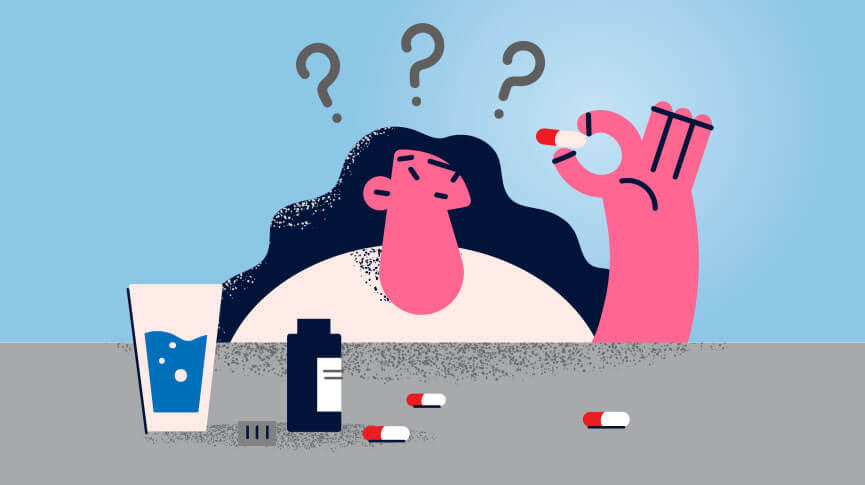How Antibiotics Can Affect Your Health

Modern medicine has given us so many incredible advances that have been life-saving and life-changing for countless people. One of the biggest medical advances has been the creation of antibiotics. Antibiotics have made it possible for people to get over an infection with a few pills that may have been a death sentence in the past. Things like surgery, kidney infections, and skin irritations are now easy to recover from thanks to this incredible advancement. Unfortunately, there are some downsides to antibiotics, both to your body, and the environment. We’re going to uncover the impact that antibiotics can have on your health, and the planet, as well as what to do when you need to take them.
Good Bug, Bad Bug
The human body is no stranger to bacteria and other microorganisms. Bacteria, fungi, and viruses make up about 1-3% of the body’s mass, and outnumber human cells by ten to one. These microorganisms are essential for your health and many physiological processes including your immune system, digestion, and mental health. When you take antibiotics, they not only help to wipe out harmful bacteria that are causing infections, but they also take a toll on the beneficial bacteria that you need to survive.
The Rise of Superbugs
The biggest large-scale issue with antibiotic usage is antibiotic-resistant bacteria. Many people, especially in the United States were prescribed antibiotics when they weren’t really necessary, like say for acne. An estimated 50% of antibiotics prescribed in the United States are not needed or not as effective as hoped. This statistic is slightly lower in some countries that are a bit more conscious about the potential dangers of antibiotics.
When these antibiotics are overused it gives bacteria the chance to adapt and become resistant to antibiotics. This has created what’s called “antibiotic-resistant bacteria”, sometimes referred to as Antimicrobial resistance (AMR). This is when viruses, fungi, bacteria, and parasites adapt and no longer respond to antibiotics and other medicines, making it harder to fight infections. Bacteria aren’t just adapting from human usage. Unused antibiotics are often flushed down toilets or drains or thrown into landfills. This causes them to enter waterways, agricultural crops, and contaminate the environment. Contributing even further to antimicrobial resistance.
Antibiotics and Your Health
Outside of superbug infections, there are other ways that antibiotics can wreak havoc on your health, whether or not they were necessary. Antibiotic usage can make people susceptible to a diarrhea-causing bacterial infection from C. difficile. This bacteria can be picked up from contaminated surfaces and can be potentially fatal. This is more common in older people or people with a compromised immune system, but it isn’t the only potential side effect.
Remember how we talked about the necessity of good bacteria and other microorganisms in your body? Well when antibiotics come through to do their job, they sometimes do it too well. When the beneficial bacteria are harmed by antibiotics it interferes with the jobs they do. This can lead to gut-health imbalances, difficulties concentrating, and even yeast infections. The delicate gut microbiome can be thrown off with just the slightest imbalance. On average, gut bacteria return to normal levels about two months after antibiotic usage, but some healthy bacteria may be missing for six months or longer after usage.
Other potential side effects of antibiotics include:
- Sensitivity to sunlight (photosensitivity)
- Bone damage
- Possible allergic reactions can range from mild to serious
- Vomiting and nausea
- Constipation, diarrhea, and gas
The damage that antibiotics can cause to the gut microbiome can affect you long past after you use them. Long-term effects of a damaged gut can even make you more susceptible to diseases like Parkinson’s, Alzheimer’s, diabetes, and heart disease.
What to Do if You Need Antibiotics
Things happen, and sometimes we do need antibiotics, in which case, thank goodness they’re an option! If you do need them, it’s important to support your gut microbiome and immune system to help recover from the damage that antibiotics can do.
Some of the steps you can take to help protect your body from the side effects of antibiotics include:
- Only taking probiotics exactly as prescribed and finishing the full course.
- Taking probiotics and eating probiotic-rich food such as kefir, kombucha, and other fermented foods.
- Managing stress levels.
- Getting quality sleep, at least seven to eight hours a night.
- Decreasing your intake of refined sugar and carbs.
- Having a gut health-friendly diet with foods full of fiber, vitamins, minerals, and prebiotics.
- Eating collagen-rich food like bone broth, shellfish, and egg whites protects the gut lining and connective tissues.
- Boosting Vitamin C intake through things like citrus, peppers, and broccoli.
- Get regular physical activity.
Antibiotics are an essential development in the history of modern medicine, but it’s vital to use them only when necessary and to take steps to rebuild your microbiome after using them.

Natasha (she/her) is a full-spectrum doula and health+wellness copywriter. Her work focuses on deconstructing the shame, stigma, and barriers people carry around birth, sex, health, and beyond, to help people navigate through their lives with more education and empowerment. You can connect with Natasha on IG @natasha.s.weiss.


